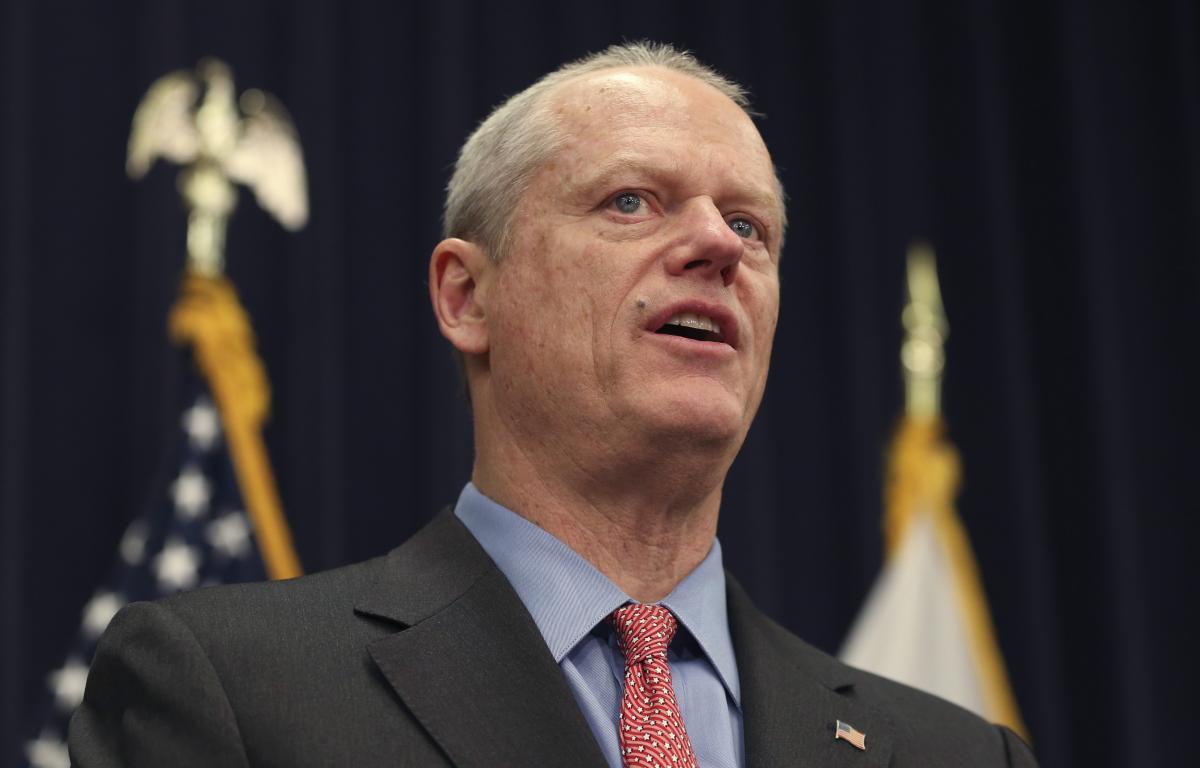By JULIE CUNNINGHAM
(Boston, MA) The Baker-Polito administration is investing $2.9 billion in federal aid into post COVID-19 economic recovery for the Commonwealth of Massachusetts. The allocated funds are part of a $5.3 billion grant from the federal government as part of the American Rescue Plan Act. The funds will support housing, economic development, workforce development, healthcare, and infrastructure development. $100 million is allocated to increasing broadband digital access and another $100 million will go to marine port development. The $100 million for marine port development is a new addition for the bill, which is the same bill filed last month with the Legislature. $10 million will go to housing development in the Commonwealth with a focus on disproportionally impacted communities. Another $2 billion remains from the federal aid received by Massachusetts and that money will remain in the Federal COVID-19 Response Fund.
“We are eager to work with the Legislature to put these funds to work and our $2.9 billion proposal will immediately aid those hardest hit by COVID-19 like communities of color and lower-wage workers,” said Governor Charlie Baker. “This plan addresses homeownership gaps in communities of color, connects workers with in demand job-training, boosts addiction treatment services and invests in local infrastructure. It’s crucial that the Legislature act quickly and not hold up these important investments. Communities of color, the hardest hit areas of the Commonwealth, should not have to wait to have their tax dollars be put to work.”
Highlights of the plan include:
Housing
- $300 million to support expanded homeownership opportunities, focused on first-time homebuyers who are residents of disproportionately impacted municipalities;
- $200 million to support housing production through MassHousing’s CommonWealth Builder Program and similar efforts, which aim to help communities of color build wealth by promoting home ownership among residents of disproportionately impacted municipalities;
- $200 million to fund rental housing production and provide increased housing options to workers and residents of disproportionately impacted municipalities;
- $300 million to finance the statewide production of senior and veteran housing. These new housing options would contain a supportive services component, and would be combined with other resources including Low-Income Housing Tax Credits, rental payments, and, in the case of veteran housing, VA health care.
Economic Development
- $100 million for Downtown Development to concentrate economic growth activities, resources, and investments within local neighborhood areas in municipalities disproportionally impacted by COVID;
- $250 million to support investments and regional collaboration aimed at invigorating downtowns throughout Massachusetts. These resources would provide grant funds to municipalities and other eligible public entities for a range of projects;
- $100 million to support cultural facilities and tourism assets throughout Massachusetts;
Workforce Development
- $240 million to fund a suite of job training programs and address skills gaps, to better position residents who want to be hired into jobs that businesses need filled. Areas of investment include:
-
- $150 million for workforce credentials for entry and mid-level wages;
- $35 million to fund English for Speakers of Other Languages programs and Adult Basic Education;
- $25 million for work readiness and essential skills programs.
Health Care
- $50 million for fiscally stressed hospitals in disproportionately impacted municipalities as these hospitals have supported their communities significantly during the pandemic despite interruptions to their revenue streams;
- $175 million for addiction treatment and related behavioral health services.
Infrastructure Investment
- $400 million to fund grants for water and sewer infrastructure;
- $300 million to improve culverts, dams, and other environmental infrastructure;
- $100 million to enhance and modernize state park facilities;
- $100 million to close the digital divide and increase broadband internet access, helping to promote workforce development and economic growth.
- $100 million for marine port development.


